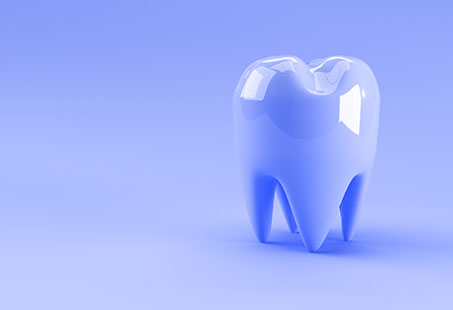Dental crowns are one of the most durable restorations that can last for decades. Nevertheless, how long does a dental crown last depends on many different factors.
Mainly, it will come down to the skill of your dentist and your oral hygiene and habits, along with the crown’s location and the material of it.
Even though a dental crown is just a fake tooth, you still have to care for it like a real one. Otherwise, it won’t be long before you’re looking to get your crown replaced.
In this guide, you’ll learn more about the longevity of different types of crowns and what you can do to better care for them.
How Many Years Should A Crown Last?
Typically, dental crowns can last for 10 to 15 years. However, their average lifespan can vary depending on:
- Your oral hygiene – brushing and flossing
- Your diet – how many hard, sticky, sweet and acidic foods you eat
- Whether or not you smoke – increases the risk of gum disease
- Whether or not you grind your teeth – Teeth grinding (bruxism) can result in cracking and/or wearing
- How you use your teeth – for nail biting, opening packages/bottles, chewing ice, etc.
- Your crown placement and fitting – can cause decay and even lead to the crown falling out
Based on these factors, you might need to get your crown replaced after several years. So, the answer to dental crowns last how long exactly is that it depends.
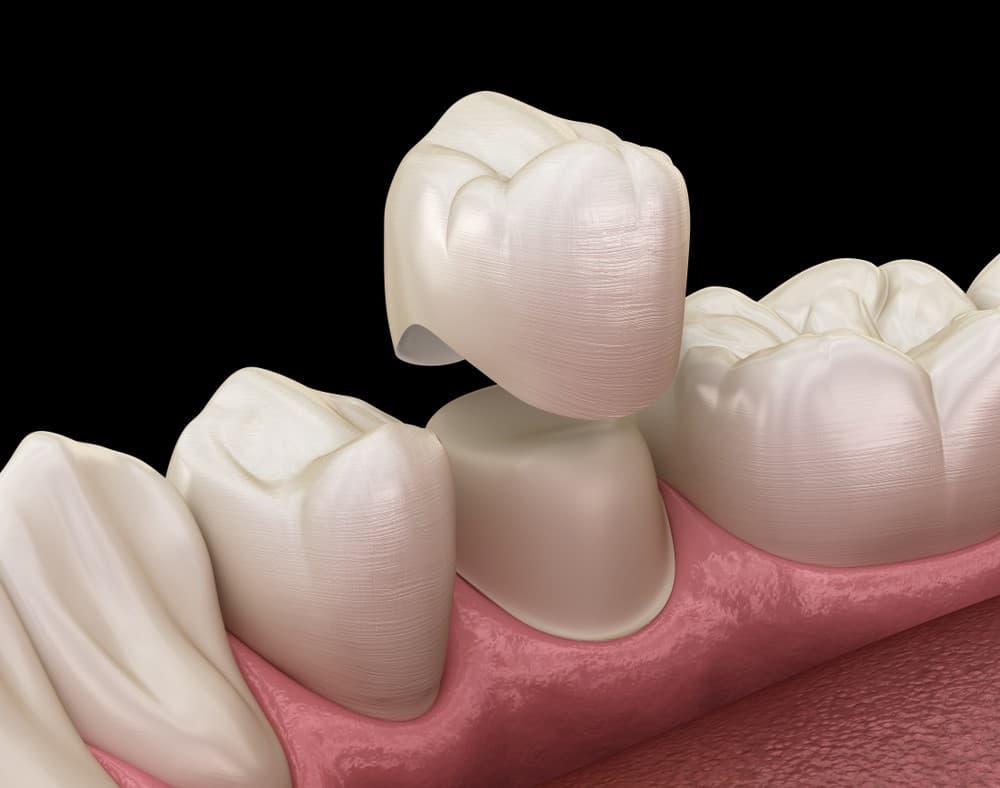
If your crown or underlying tooth (and surrounding tissues) have deteriorated over time, a replacement may be necessary.
Can A Dental Crown Last A Lifetime?
If you take good care of your teeth, it’s possible for your dental crown to even last a lifetime. However, it can also depend on where the crown was placed in your mouth and how well it was placed.
How Long Do Different Dental Crown Materials Last?
The material of the dental crown can have a significant impact on its longevity. Here’s an estimate of how long a dental crown lasts depending on its material composition.
Metal
Metal crowns are usually the most durable of all. They’re very hard to break and are best suited for the back teeth (where forces are much greater).
There are different types of metal dental crowns, such as:
- Gold
- Platinum
- Palladium
- Nickel
- Chromium
For a very long time, metal restorations were mainly used because of how biocompatible and strong they were (this changed due to aesthetic concerns).
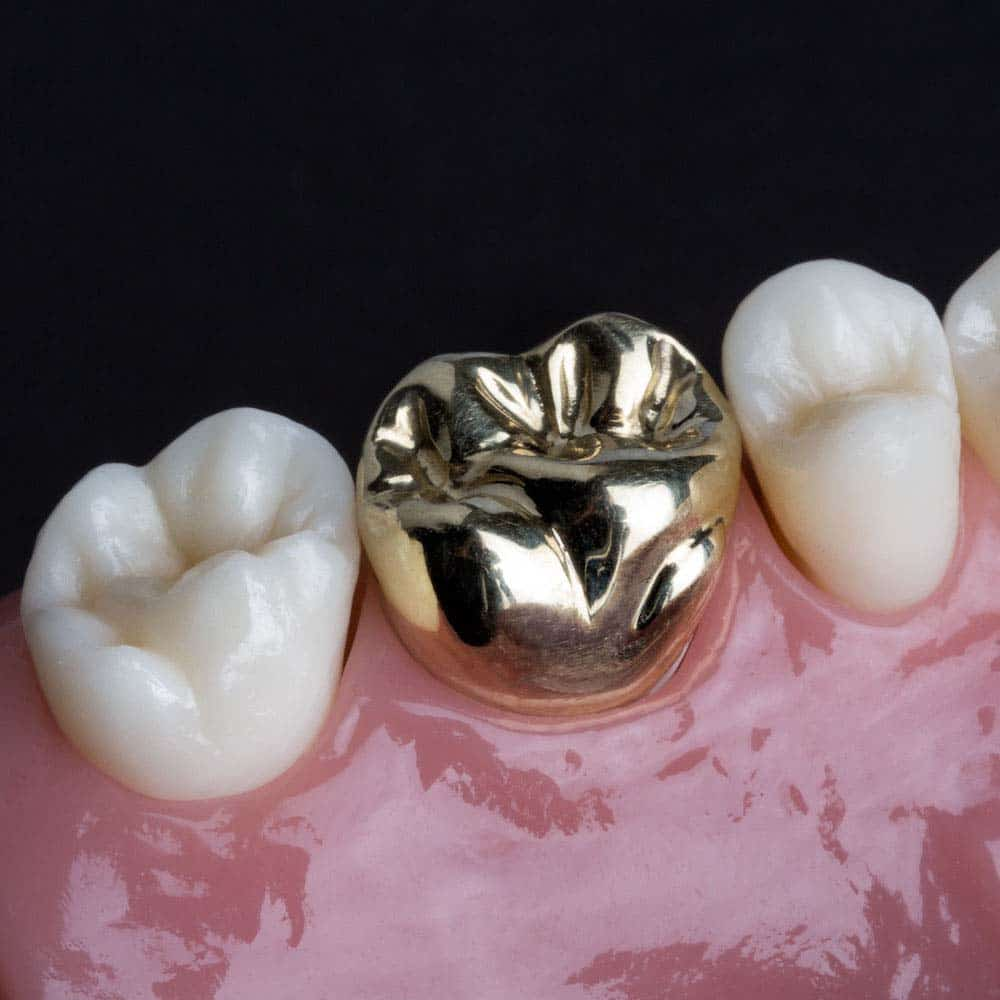
According to a literature review published in the South African Dental Journal (SADJ), gold crowns are still the “gold standard” because they have a more than 96% survival rate in a decade.
Ceramic
Ceramic or porcelain crowns are also quite durable.
There’s also a type of crown that’s made of both metal and ceramic. It’s called the porcelain-fused metal crown. The base is metal, but the external coating is of porcelain, which gives it a more natural look.
Compared to the all-ceramic crowns, the metal fused varieties are more durable because of the strength of the metal. It can even last as long as an all-metal crown.
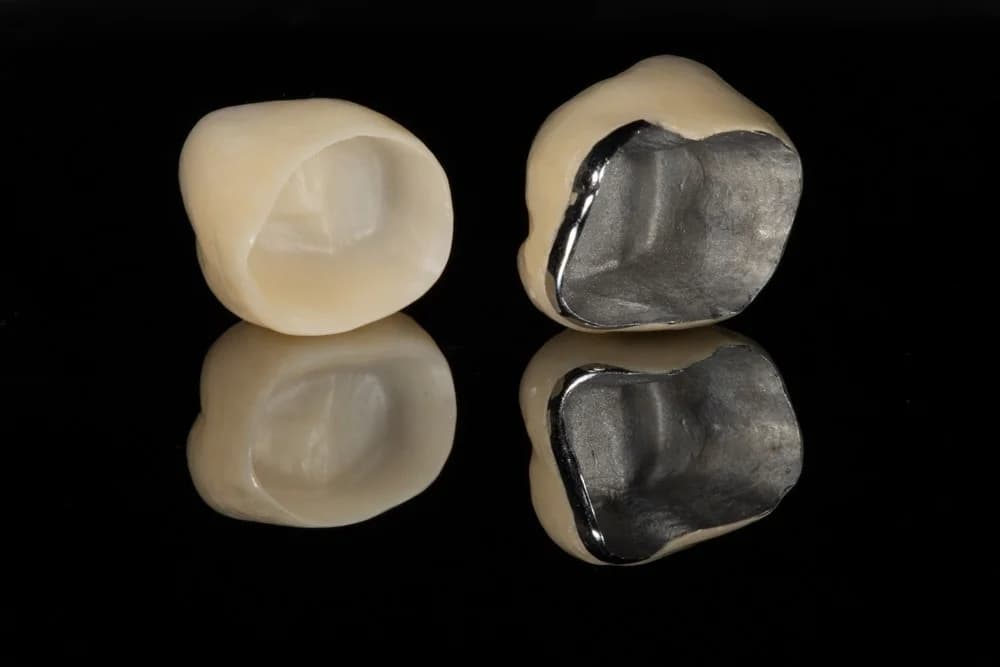
One study published in Cureus compared the survival rates of metal fused and all ceramic crowns. It found that porcelain-fused metal crowns had a survival rate of 99.5%, while it was 92% for all-ceramic crowns after 5 years.
Still, if well taken care of, you can expect them to last for as long as 15 years or even more.
There are other types of ceramic crowns as well, such as CEREC, zirconia and E-max.
According to the above research published in SADJ, E-max is a stronger restoration than zirconia, with the former having a survival rate of 90% over 10 years.
Resin
Resin dental crowns are usually the weakest of them all. You shouldn’t expect them to last longer than 5 years. In fact, they may break even sooner.
They can be quite cheap, but you have to keep the recurring costs for their replacement in mind.
Are Crowns Good Long-Term?
Crowns are good long-term restorations. They work very well to restore the aesthetics and/or functionality of your teeth. Their survival rates are usually over 10 years, and many researchers report a satisfaction rate of over 90%.
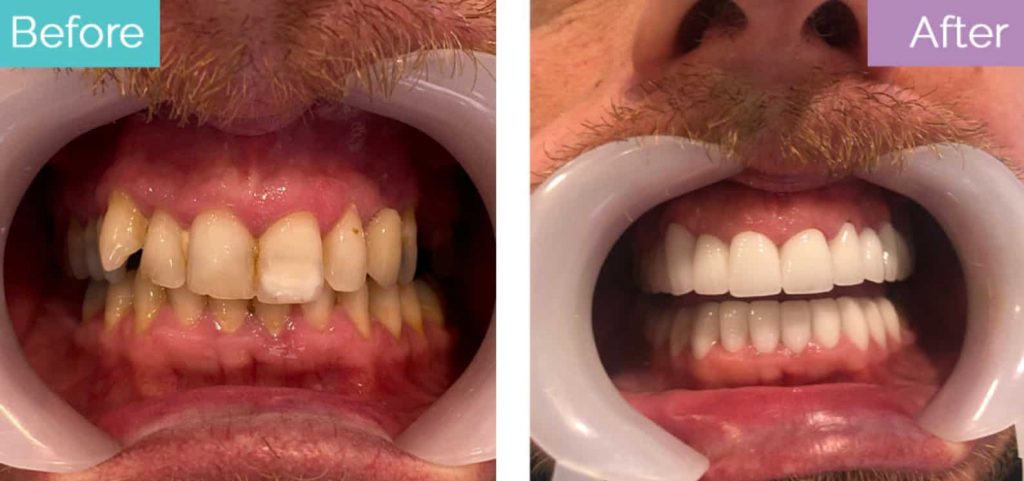
If you have weak teeth, they can do a good job of protecting them. That way, you can retain your natural tooth for a longer period of time. However, we need to reiterate that it’s very important to take good care of your crown.
Even with a crown, you can experience tooth decay. This can happen due to poor oral hygiene or if there’s any gap between your tooth and crown. In that case, you’ll need to get the crown replaced.
How Do You Know When A Crown Needs To Be Replaced?
Your crown might need to be replaced in the following instances:
- It’s too worn, cracked, chipped or broken.
- It feels loose.
- It’s ill-fitted (with a margin between your tooth and crown).
- You have pain, sensitivity, soreness and/or inflammation.
- You have bad breath and/or bad taste in your mouth.
- Your crown has fallen out.
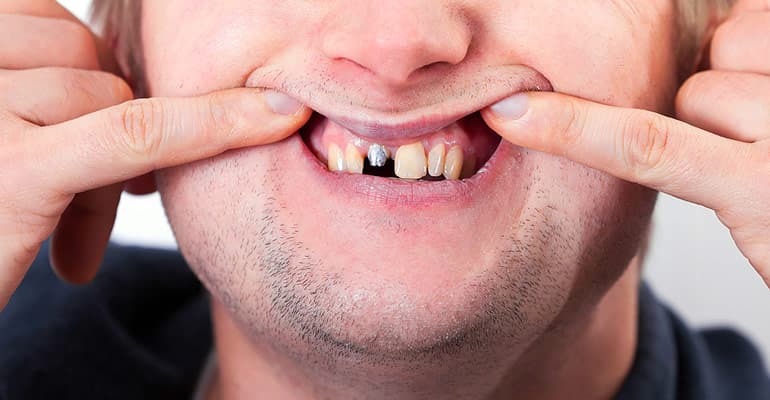
You might not necessarily have these symptoms, which is why it’s important to get your teeth checked regularly. Physical examinations and X-rays will be able to tell you more about the condition of your crown.
Keep in mind that you might not always need to get a crown. If the damage is repairable, your dentist may consider doing that instead. And if the entire crown is intact and structurally sound, they can also re-cement it.
Reasons Why Your Tooth Crown May Not Last Long
There are different reasons why a dental crown might need to be replaced sooner than expected. It can be due to any of the following:
- Poor dental hygiene
- A diet high in sugary, sticky and acidic foods
- Biting down on hard foods and objects
- Clenching or grinding your teeth
- Smoking
- Not getting routine dental cleaning and check-ups
It’s also really important to find a qualified and experienced dentist for your crown placement. If it’s done wrong and your crown (and underlying tooth) is damaged, then too you might end up needing a new restoration.
Understanding The Durability Of Dental Crowns In Turkey
Many people get dental crowns in Turkey for a new smile. The quality of the restorations used here is just as good as anywhere else. In fact, the clinics here use CE and FDA-approved dental materials.
So, as far as your dental crowns in Turkey are concerned, you can expect them to last for a decade or even longer (if you take good care of them). Keep in mind that before the final crowns are fitted, you’ll have temporary crowns.
And they might fall off, but it isn’t anything to worry about. If this happens, make sure to reach out to your contact person. They’ll make sure to get you the necessary help.
In a few days, your permanent crowns will be fitted, and you can enjoy them for a long, long time. But the answer to how long should a dental crown last (no matter where you’re getting the crowns) depends on how skilled your dentist is and how well you take care of your teeth.
FAQ
Do crowns only last 5 years?
The minimum average lifespan of a dental crown is usually 10 years. However, they can last much longer than this.
Can crowns last 20 years?
It’s possible for your dental crowns to last for 20 or even 30 years. In fact, they can even last a lifetime. But how long does a dental crown last depends on multiple factors.
How long do dental crowns last on front teeth?
Even on the front teeth, the expected survival rate of dental crowns is usually between 10 to 15 years.
Do dentists reuse crowns?
If your crown is intact and structurally sound, it may be possible for your dentist to reuse your crown instead of making a new one.
